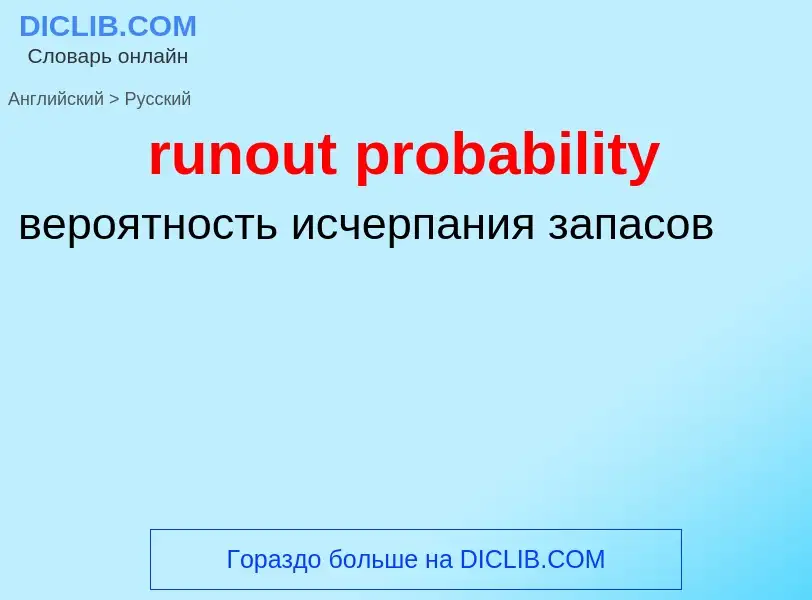Traducción y análisis de palabras por inteligencia artificial ChatGPT
En esta página puede obtener un análisis detallado de una palabra o frase, producido utilizando la mejor tecnología de inteligencia artificial hasta la fecha:
- cómo se usa la palabra
- frecuencia de uso
- se utiliza con más frecuencia en el habla oral o escrita
- opciones de traducción
- ejemplos de uso (varias frases con traducción)
- etimología
runout probability - traducción al ruso
[imprɔbə'biliti]
существительное
общая лексика
невероятность
неправдоподобие
невероятность, неправдоподобие
[prɔbəbə'listik]
общая лексика
вероятностный
прилагательное
общая лексика
вероятный, вытекающий из теории вероятностей
существительное
общая лексика
вероятный
вытекающий из теории вероятностей
религия
пробабилистичный
Wikipedia
In mathematics, a probability measure is a real-valued function defined on a set of events in a probability space that satisfies measure properties such as countable additivity. The difference between a probability measure and the more general notion of measure (which includes concepts like area or volume) is that a probability measure must assign value 1 to the entire probability space.
Intuitively, the additivity property says that the probability assigned to the union of two disjoint events by the measure should be the sum of the probabilities of the events; for example, the value assigned to "1 or 2" in a throw of a dice should be the sum of the values assigned to "1" and "2".
Probability measures have applications in diverse fields, from physics to finance and biology.

![0-521-62128-3}} [https://books.google.com/books?id=Q1AUhivGmyUC&pg=PA149 page 149]</ref> 0-521-62128-3}} [https://books.google.com/books?id=Q1AUhivGmyUC&pg=PA149 page 149]</ref>](https://commons.wikimedia.org/wiki/Special:FilePath/Maxwell-Distr.png?width=200)
